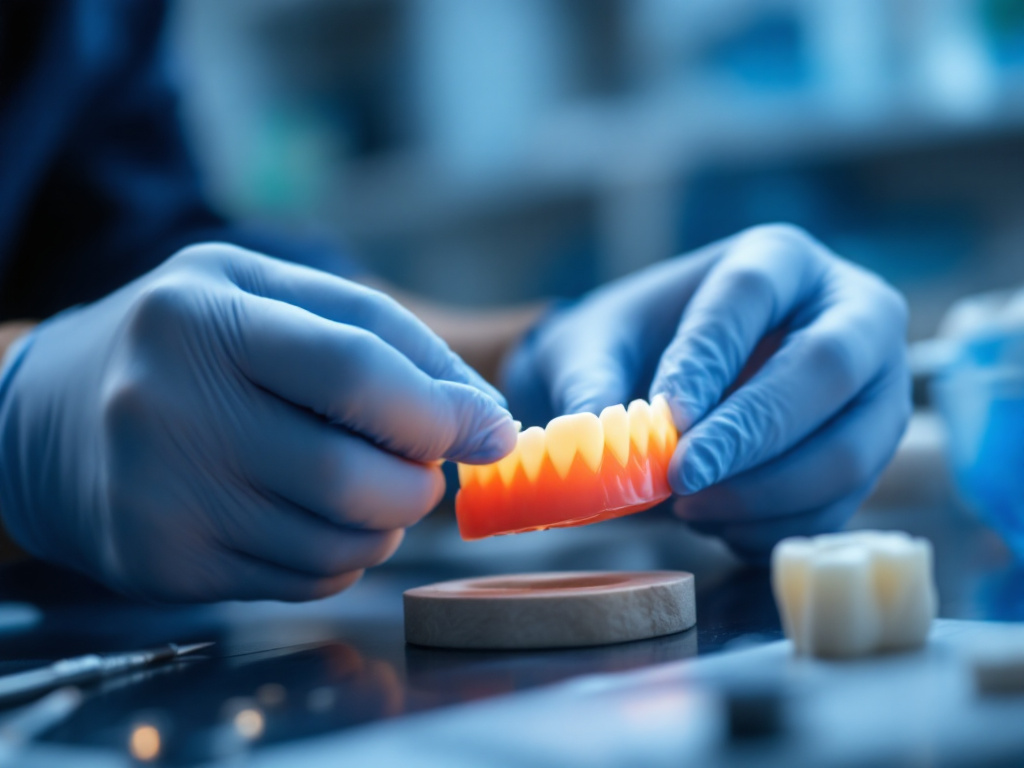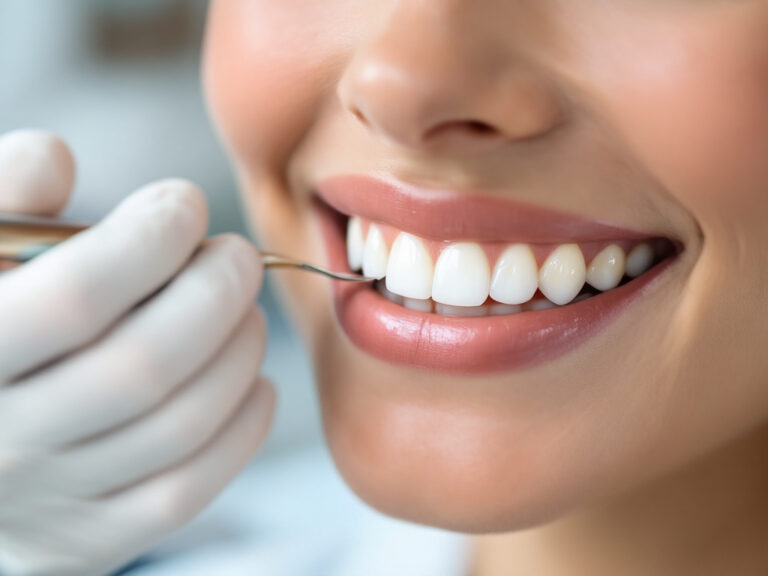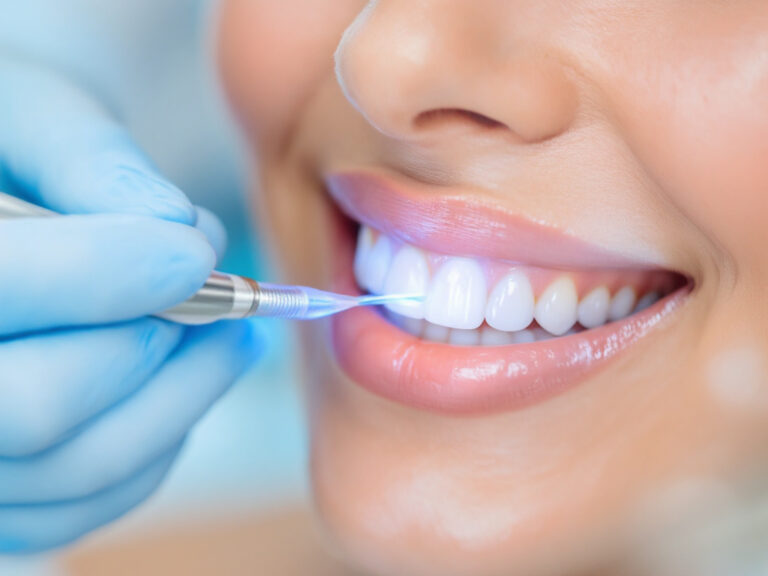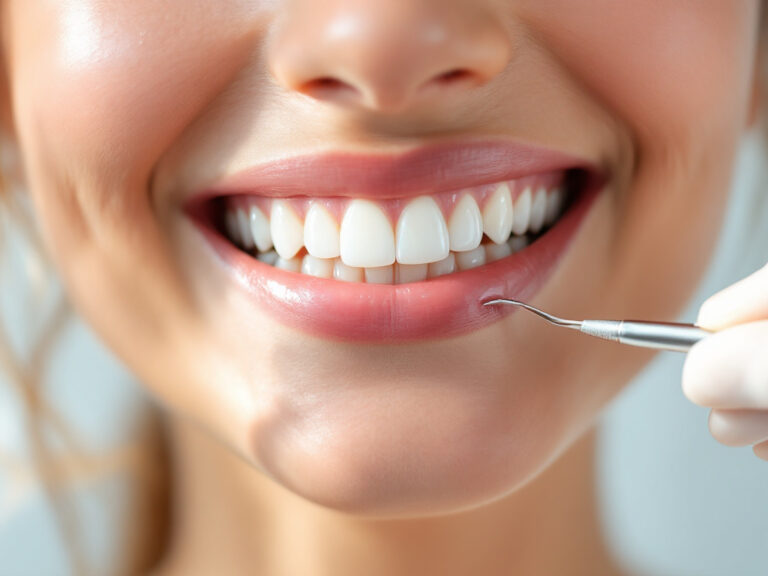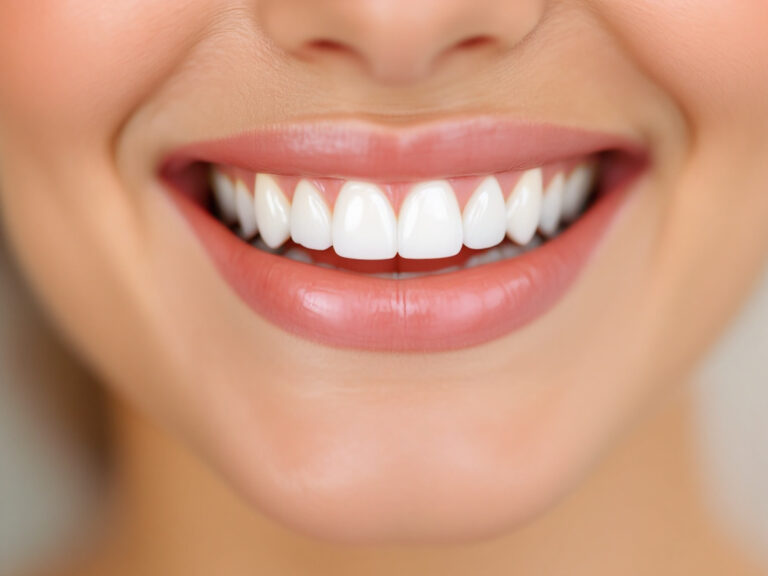Custom denture fitting is a critical component of restorative dentistry, ensuring that your dentures match the unique contours of your mouth. From selecting the right materials to precise bite alignment, the customization process enhances comfort, function and appearance. In this guide, you will learn how custom denture fitting works, the variety of denture options, what to expect at each stage and how to care for your new smile. If you are exploring other restorative options, you can review treatments such as dental bridge replacement or schedule a dental implant consultation.
Understand denture basics
What are dentures
Dentures are removable prosthetic devices designed to replace missing teeth and surrounding gum tissue. Traditional dentures consist of acrylic bases that rest on your gums, with synthetic teeth set into the base. Modern advancements include flexible thermoplastic bases and implant-supported attachments. A well-fitted denture restores chewing ability, speech clarity and facial support while preserving your natural facial contours.
Who needs dentures
You may need dentures if you have lost multiple teeth due to decay, injury or gum disease. Complete (full) dentures replace all teeth in an arch, while partial dentures fill gaps when some natural teeth remain. Dentures are suitable for patients who want a non-invasive solution or those who are not candidates for implants or bridges. Your dentist will assess your oral health, bone density and lifestyle needs before recommending custom dentures.
Benefits of custom dentures
Custom-fitted dentures maximize comfort by matching the exact shape of your gums and jaw. They reduce common issues like slipping, sore spots and difficulty chewing. Precise customization also enhances aesthetics, giving you a natural-looking smile that blends with your facial features. Experienced professionals—such as the team at Inspired Dental Studio—use detailed impressions and expert craftsmanship to deliver dentures tailored to your anatomy [1].
Explore denture varieties
Traditional dentures
Traditional dentures, also known as complete dentures, replace all teeth in either the upper or lower jaw. They rely on suction and denture adhesive to stay in place. Traditional full dentures cost an average of $1,968 and can range from $1,520 to $3,648 [2]. While they offer an affordable solution, you may need periodic relines to accommodate changes in your jawbone over time.
Partial dentures
Partial dentures fill gaps where you have lost one or more teeth. They attach to adjacent natural teeth using metal clasps or precision attachments. Partial metal dentures average $2,229, while partial resin dentures average $1,738 [2]. By restoring missing teeth, partial dentures help maintain proper tooth alignment and prevent shifting of your remaining teeth. For more information, see partial denture replacement.
Immediate dentures
Immediate dentures are inserted immediately after tooth extractions, so you never go without teeth during healing. They serve as a temporary or final solution depending on your case. Immediate dentures cost around $2,178 on average [2]. As your gums and bone heal, you will need adjustments or new impressions, since the shape of your mouth changes over approximately 12 months.
Implant-supported dentures
Implant-supported dentures, sometimes called hybrid or permanent dentures, attach securely to dental implants placed in your jaw. This option provides superior stability, prevents slipping and helps preserve bone by stimulating the jaw. You must clean around the implants and under the denture daily to maintain oral health [3]. To explore implant solutions, schedule a dental implant consultation.
Flexible dentures
Flexible dentures feature a clear thermoplastic base that molds to your gums for a snug fit. They are lightweight, thin and durable, offering a more comfortable alternative to rigid acrylic. Flexible dentures cost an average of $1,761, ranging from $1,360 to $3,451 [2]. Their flexibility makes them less prone to breakage and reduces pressure points on your gums.
Follow fitting steps
Initial consultation
Your dentist conducts a comprehensive exam, including X-rays or digital scans, to assess your oral health. You will discuss your goals, medical history and any concerns about fit, appearance or budget.
Diagnostic records
Your dentist records jaw relationships, facial measurements and bite registration. These records guide the lab in creating dentures that align properly with your natural jaw movements.
Impression taking
Detailed impressions of your gums and any remaining teeth capture the precise contours of your mouth. Accurate molds are essential for a secure, comfortable fit.
Jaw relation records
Bite models and face-bow transfers document how your upper and lower jaws meet. Proper occlusion prevents issues like uneven wear, jaw pain or speech problems.
Wax try-in
A wax prototype of your dentures allows you and your dentist to evaluate fit, function and aesthetics. You can preview tooth shape, size and color before final fabrication.
Denture delivery
Once your custom dentures arrive, your dentist fits them in your mouth and makes fine-tune adjustments. Expect to return for a few fitting appointments as your soft tissues adapt.
Follow-up appointments
Follow-up visits are essential for monitoring fit and comfort. Your dentist makes necessary modifications to pressure areas and bite alignment. It usually takes several visits to achieve the ideal fit as your mouth adjusts [3]. Overall, expect about eight weeks from initial consultation to final denture delivery [4].
Evaluate customization options
Material selection
Your dentist will recommend base and tooth materials based on durability, comfort and cost. Options include acrylic resin, nylon-based thermoplastics and metal frameworks. Teeth may be crafted from porcelain or acrylic, each offering different wear characteristics and aesthetics.
Digital design
Advanced digital scanners and CAD/CAM technology enhance the precision of your custom dentures. The same workflows used for same-day crowns allow for faster turnaround and consistent accuracy. Digital design reduces manual errors and helps ensure a seamless fit.
Color and aesthetics
Shade selection is key to a natural appearance. Your dentist matches the denture teeth to your remaining natural teeth or to a desired shade, considering translucency and surface texture. Customized tooth shape and arrangement complement your facial structure and smile line.
Bite alignment
Accurate occlusion is critical for comfortable chewing and long-term joint health. Your dentist uses bite registration records to set tooth positions that mimic natural chewing patterns, reducing the risk of sore spots, jaw pain or uneven denture wear.
Expert craftsmanship
Experienced dental technicians and clinicians bring your custom dentures to life. Qualified professionals tailor every aspect—from base thickness to tooth angulation—to meet your functional and aesthetic goals [1].
Consider cost factors
Denture type costs
Basic replacement dentures start at $499 per arch at Aspen Dental, offering a budget-friendly option with transparent pricing [5]. Premium custom dentures typically average $6,514, with prices ranging from $5,000 to $12,438 [2].
Additional procedures
If you require extractions, bone grafts or preliminary treatments, these will add to your overall cost. Aspen Dental provides clear breakdowns and financing options, so you know what to expect with no hidden fees [5].
Financing options
Many practices offer in-office payment plans or third-party financing to spread out the expense. Ask your dentist about low-interest plans, no-interest promotional offers or monthly payment schedules tailored to your budget.
Insurance coverage
Dental insurance coverage for dentures varies widely. Most private plans limit adult restorative benefits, while Medicare rarely covers dentures. Medicaid may cover one set of dentures every five or six years, depending on your state [6]. To explore your options, see insurance covered dental restoration or budget-friendly care under affordable restorative dentistry.
Maintain your dentures
Daily cleaning routine
Brush your dentures daily with a soft-bristled denture brush or regular toothbrush and nonabrasive cleanser. Remove food particles, plaque and denture adhesive to protect gum health.
Overnight care
Remove and soak your dentures overnight in a denture-cleaning solution or plain water. Keeping them moist prevents warping and bacterial growth.
Periodic relining
Soft tissues and bone change shape over time. Have your dentures relined every one to two years, or whenever you notice loose fit or discomfort [3].
Avoiding damage
Handle dentures carefully over a soft surface or sink filled with water to prevent breakage if dropped. Avoid exposing them to hot water or harsh chemicals that can warp or discolor the material.
Assess long-term results
Denture lifespan
On average, custom dentures last seven to ten years before wear and jawbone changes necessitate replacement [3].
Signs to replace
Watch for persistent sore spots, difficulty chewing or noticeable gaps between dentures and gums. These signs indicate your dentures no longer fit properly.
Implant upgrade
If you seek greater stability and bone preservation, consider transitioning to implant-supported dentures. Implants stimulate the jawbone and reduce bone resorption, extending the lifespan of your prosthesis [3].
Oral health impact
Well-fitted dentures help maintain your facial structure and prevent the sunken appearance caused by bone loss. For comprehensive rehabilitation, ask about bite correction dental treatment or a full mouth restoration program tailored to your long-term oral function.
Custom denture fitting offers a tailored solution to restore your smile, confidence and chewing ability. By understanding denture types, the fitting process, customization options, cost factors and maintenance routines, you can make informed decisions and enjoy functional, high-quality restorations for years to come. For additional tooth replacement options, visit tooth replacement solutions.

